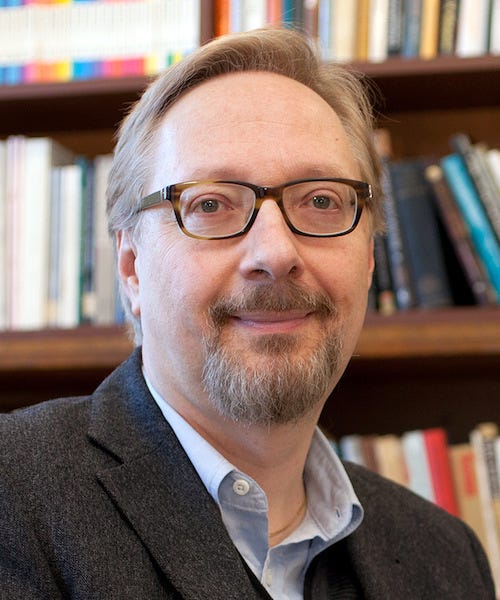
Common Ground hosted its second event centered around the ongoing war in Ukraine on Tuesday, Nov. 15 at 7 p.m. in Bradford Auditorium. The panel featured Andrei Kozyrev, the first Minister of Foreign Affairs for Russia post-Soviet Union as well as Nicolai Petro, the Silvia-Chandley Professor of Peace Studies and Nonviolence and Professor of Political Science at the University of Rhode Island. The discussion between the two was moderated by the Hamilton College Henry Platt Bristol Professor of International Relations, Professor Alan Cafruny.
Petro was the first to speak, noting how the Russian invasion of Ukraine is Moscow’s military effort to end Ukraine’s existence as a state and reconstitute the Soviet Union. He believes that Russia’s and Ukraine’s future is controlled by their own people and that in order to potentially end the war in the near future, the two countries need to actively choose to build a peaceful relationship.
Additionally, the University of Rhode Island scholar declared that direct North Atlantic Treaty Organization (NATO) military action will not end the war, but NATO can supply the Ukrainian military with weapons. Additionally, Western nations can continue to employ sanctions in hopes of destroying the Russian economy; however, Petro referenced three decades worth of research that has concluded that sanctions with vague objectives applied over long periods of time allow the targets to adjust. As such, sanctions have never succeeded in changing the policies of other nations — not even once. Moreover, Russia is on track to end this war with a budget surplus, highlighting the failure of the sanctions. Petro summed up his argument, proclaiming that this war is not just about Ukraine, but it is about a larger crusade as Moscow is fighting against liberal democracy, freedom and progress.
Conversely, the former Russian Minister of Foreign Affairs believes that the sole reason for the war in Ukraine is that Russia hates examples of prosperous, free democracies in the West. Russia is fearful that Ukraine will further democratize, becoming closer with Russia’s enemies: NATO and the West. The Russian government particularly hates NATO since the organization was created to protect the world from Former Premier of the Soviet Union Joseph Stalin and Soviet Union aggression. Russia has made several attempts to join NATO, but has failed to meet the criteria, which include introducing democracy and a free market economy in the country.
Kozyrev recognized that Russian President Vladimir Putin did not come out of nowhere. Former Russian President Boris Yeltsin appointed Putin as the chief of Presidential Staff in 1997 and the former KGB foreign intelligence officer has stayed in power ever since. In fact, Kozyrev holds that Putin has never been democratically elected to his roles. As he has centralized power in the Kremlin, Putin has cracked down on media-owning oligarchs in order to maintain full control over the press and media in Russia.
Kozyrev reflected on growing up in the Soviet Union when there was no free media. Like Kozyrev, Putin also grew up in the USSR and learned from the Soviet environment that when the state possesses total power, the media becomes propaganda and the population becomes indoctrinated as the government-owned media is the only form of information to which the people are exposed.
Though there were some areas of agreement, by the end of the event, Petro and Kozyrev continued to disagree about the role of NATO in the War.
























